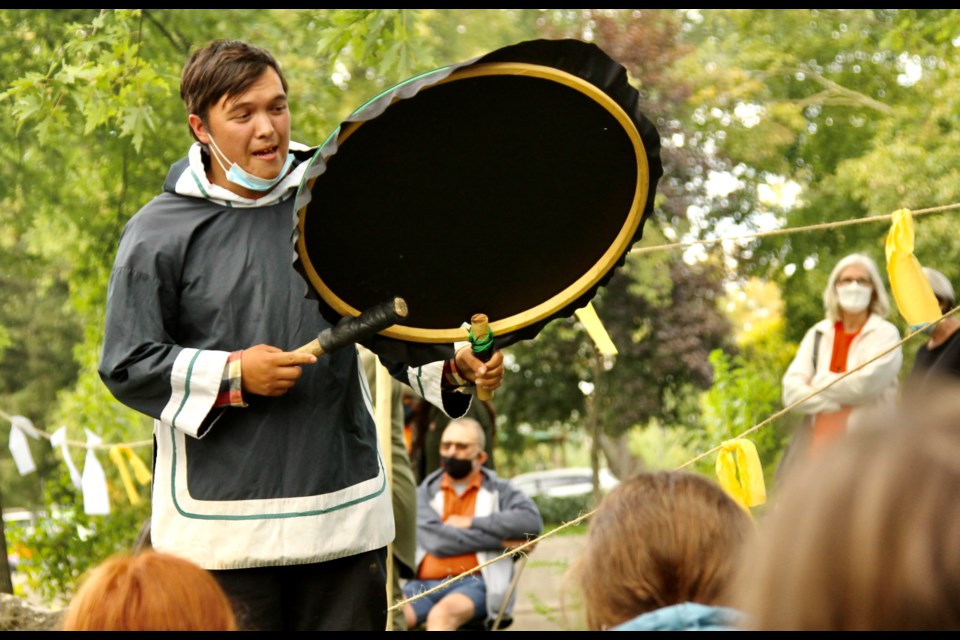Guelph residents had the opportunity to throw tobacco and cedar in the city’s sacred fire in Royal City Park on Thursday afternoon to remember and pray for lost and missing Indigenous children.
“The fire is there for you to connect with our ancestors,” said fire keeper Bruce Weaver.
“I ask that we never ever forget those children that were lost and that are still lost,” said local Indigenous Lois MacDonald, an office manager at Anishnabeg Outreach.
MacDonald spoke to over 50 people that gathered around the sacred fire for the national day for truth and reconciliation. The group included Guelph residents and school children and prayed for the children and women to come home to their families.
She told them that in order for truth and reconciliation to take place, the truth has to come out and with the recent findings of unmarked graves, she said the truth has been coming out.
“The spirits of those children are telling the world from Canada that this is what happened to us. Send us home," said MacDonald
“So I ask that we never forget this day, that we honour those children and ask that they go back to their creator but also back to their first nations and always remember that every child no matter how old or how young, no matter where they come from or what race, every child matters.”
The event was put together by Southwest Ontario Aboriginal Health Access Centre (SOAHAC) Waterloo Wellington and also saw crafts and drum circles take place.
No photos of the sacred fire were taken out of respect for the sacred tradition.
Erin Clutton, a Sacred Heart teacher, walked to the event with her Grade 7 and Grade 8 students to connect directly with nature and ritual. The students respectfully watched the sacred prayer take place and listened to the drum circles.
“The group itself is very much into social justice and they felt it was important for us to recognize and to come up with ways that we can show reconciliation, and one of those ways was to listen to the stories and to learn from the stories solely from the people,” said Clutton.
“They actually said that the words I'm sorry are not enough unless there's action involved. So their goal at this point is to learn more so that they can speak out when there are injustices that they see.”
She said the more that students are educated, the more that they will speak out.
“I've had a few students tell stories about having conversations with neighbours (who were using politically incorrect terms) and correcting them or letting them know how our history books are changing now versus what their history books would have been,” said Clutton.
“The more that they're educated, the more those stories are going to come out and they are a group that are not afraid to speak out.”
